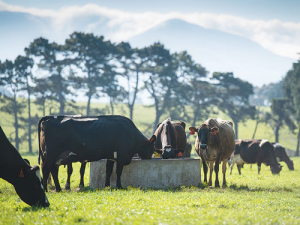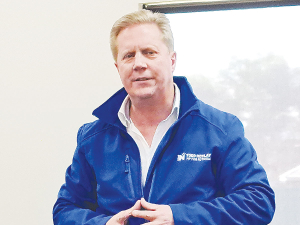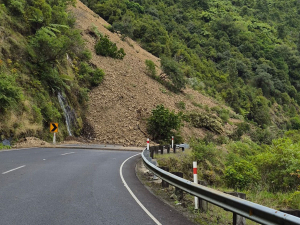Dairy farmers have made clear to the Government that they don’t support a methane reduction target of 24% to 47% by 2050.
Farmers are determined to play their part in the transition to a low emissions economy with the rest of the country. But they need a more realistic target.
DairyNZ recently told the parliamentary select committee on the environment that New Zealand is already among the world’s lowest emitting dairy producers. Even so, right now dairying accounts for 22.5% of all NZ’s emissions (sheep and beef 20.8% and transport 19.7%).
As it stands, the Government’s Zero Carbon Bill will adopt targets to reduce all greenhouse gases:
• Carbon dioxide and nitrous oxide emissions must be reduced to net zero by 2050
• Methane must be reduced to 10% by 2030 and, provisionally, to 24-47% by 2050.
But DairyNZ does not support the range targeted for 2050 gross methane emissions, ie a 24-47% reduction below 2017 levels. Instead it proposes that the 2050 methane reduction target be set at up to 24% and regularly reviewed against robust criteria. This position is supported by Fonterra and its Shareholders Council, Miraka, Synlait and Tatua.
While the politicians haggle over targets, farmers can act now to prepare for the change, says DairyNZ. The changes won’t be effective immediately but now is the time to prepare.
Know your numbers, calculate your on-farm emissions. Overseer can do this. Think about what farm management changes you could make to reduce your emissions.
Two things need considering here: improving feed efficiency and reducing nitrogen fertiliser usage. A strong relationship exists between feed intake and methane emissions, so anticipated technological mitigation options are aimed at uncoupling this relationship.
These mitigation options -- many now being researched -- will include feed additives, vaccines, genetically selected cows, selected plants (eg plantain, forage rape) and genetically modified plants. Such solutions are not yet commercially available and are unlikely to be implementable in typical New Zealand farm systems for five to 20 years.
Reducing and improving your use of nitrogen fertiliser is the best way to reduce nitrous oxide emissions.
DairyNZ correctly points out that farmers readily acknowledge how important it is for them to move on climate change. But politicians must acknowledge the importance of moving at a pace that doesn’t leave farmers, families and communities behind.











